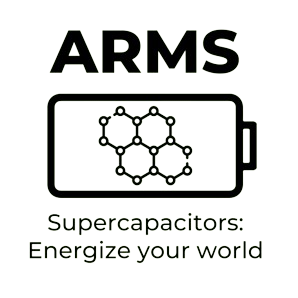Tampere University leads EU consortium to address eco-friendly energy storage

Supercapacitors, known for their high-power
density and rapid charging capabilities, have long been recognised for their
potential in revolutionising energy storage. However, despite their
eco-friendly nature, commercially available supercapacitors still face
limitations in energy density compared to traditional batteries. The ARMS
project aims to break through these barriers, paving the way for a new era in
energy storage, says current consortium leader Prof. Donald Lupo.
The heart of the ARMS initiative lies in developing groundbreaking technologies that will enhance the energy density of supercapacitors to over 50 Wh/kg, comparable to conventional lithium-ion batteries. Unlike previous attempts that often sacrificed power density and cycle life, ARMS strives to maintain these crucial attributes while ensuring eco-friendliness.
Consortium leader (from January 2024) Prof. Matti Mäntysalo says: One key innovation within ARMS is the use of scalable atomic layer deposition (ALD) processes to modify graphene-rich activated carbon electrodes by applying ultrathin conformal coatings of metal oxides at the nanoscale, promising a major increase in energy density. These electrodes are designed to offer high power density and long cycle life, addressing the limitations of conventional supercapacitors. Additionally, ARMS will introduce novel techniques to expand the operational voltage window of supercapacitors, surpassing the conventional limits and further enhancing their performance.
Importantly, sustainability is at the forefront of ARMS. The project will implement a sustainable-by-design framework to guide the fabrication processes, ensuring superior electrochemical performance and environmental responsibility. A life-cycle sustainability assessment (LSA) will further validate the supercapacitors' eco-friendliness and manufacturing processes.
ARMS is not just a technological breakthrough but a catalyst for European industrial leadership in key strategic value chains. By fostering collaborations and breakthroughs in energy storage, ARMS aims to contribute to the industrial leadership goals outlined in the destination: Industrial leadership and increased autonomy, focusing on the security of supply in raw materials.
As the ARMS project unfolds, it promises to redefine the capabilities of supercapacitors, unlocking a new era of powerful, sustainable, and economically viable energy storage.
